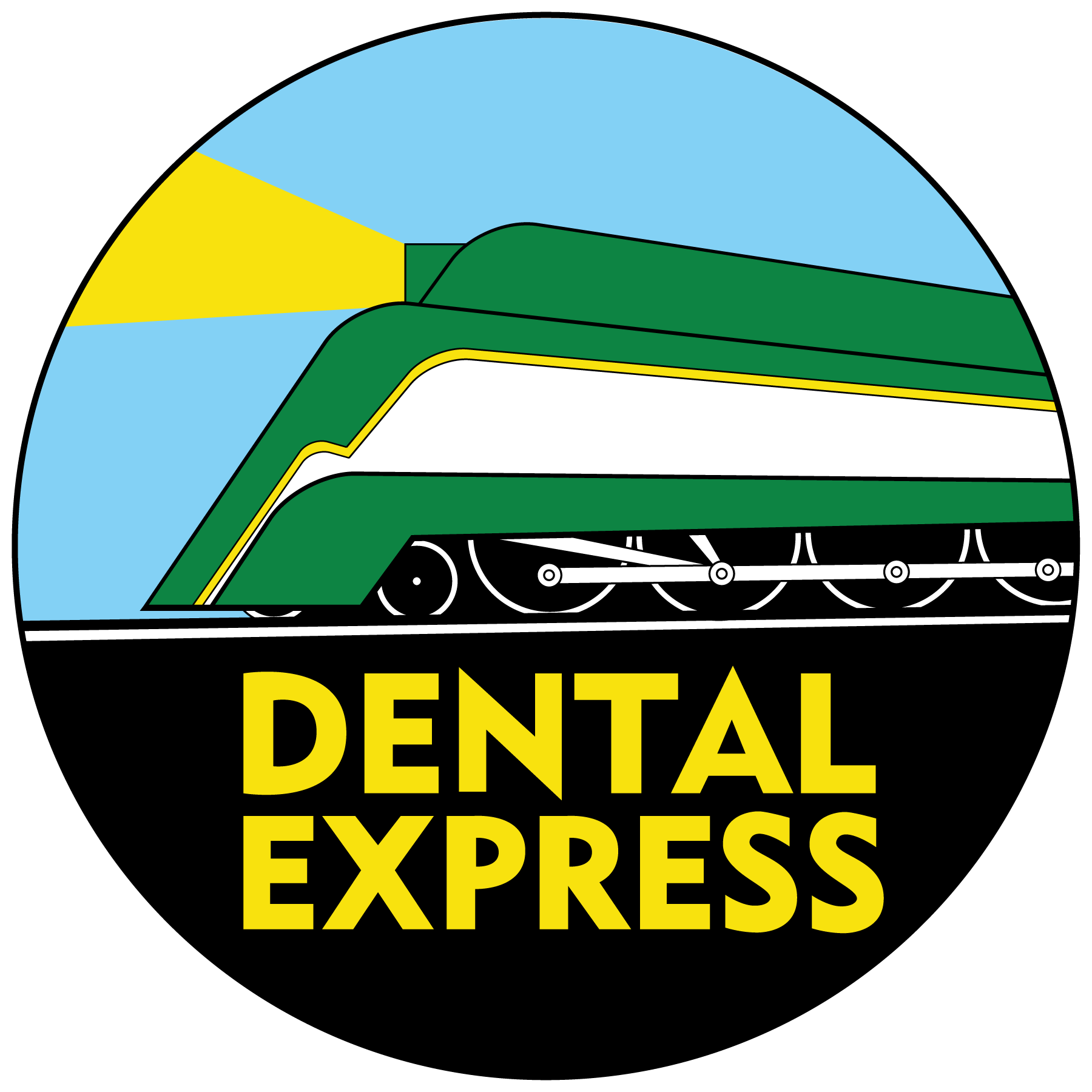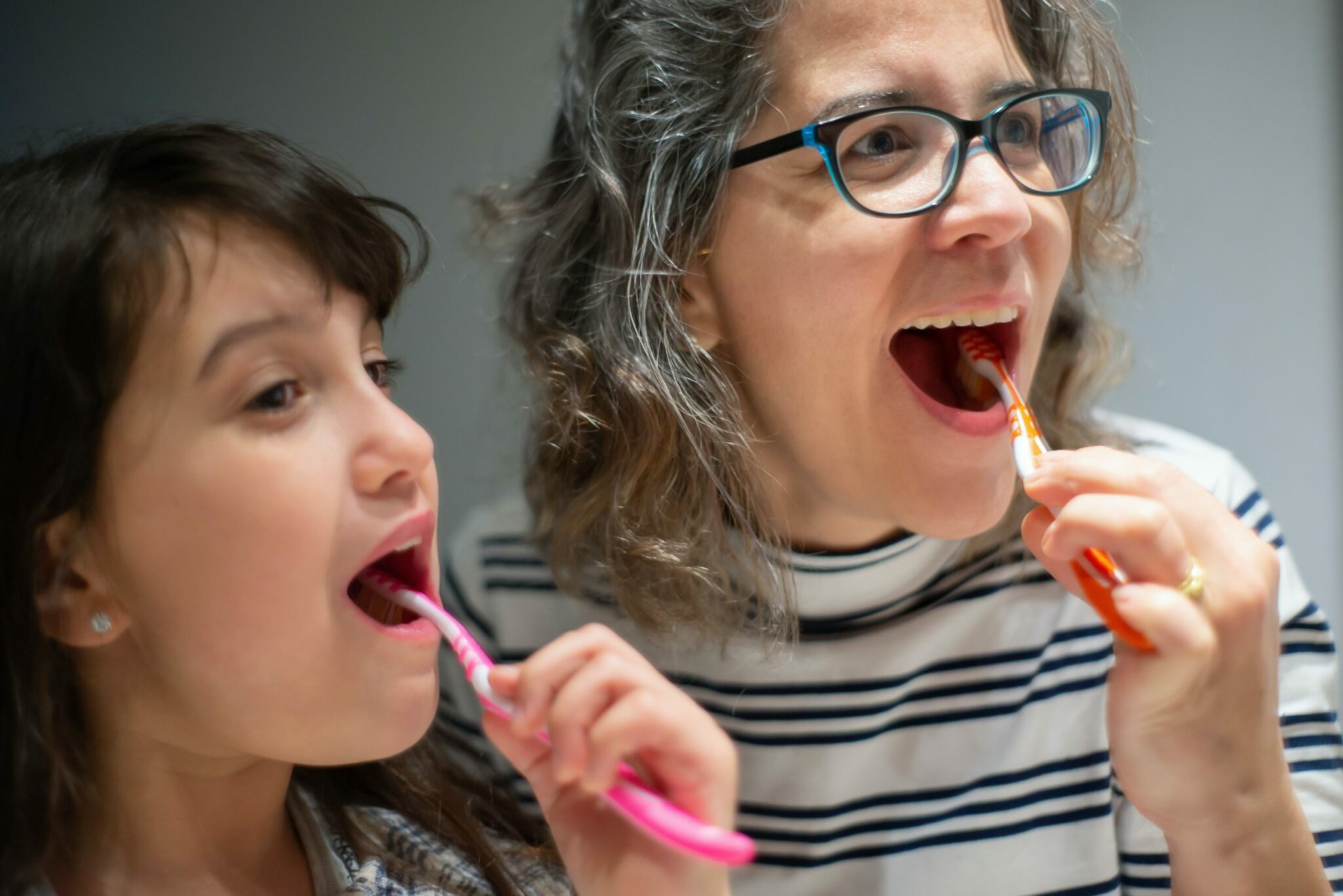We’re all human; we’re bound to mess up. But avoiding these 11 common dental care mistakes can save you a lot of time, money, and toothaches
With all the dental care products and information out there, knowing right from wrong can be challenging.
What toothpaste should you use? Is it okay to brush right after you eat? Is mouthwash a proper substitute for flossing?
There are a lot of little nuances that can adversely affect your dental health if you’re not careful.
But today, we’re going to clear up the confusion once and for all.
Read on to see if you’re making any of these eleven common dental care mistakes and, if so, learn how to fix them.
1. Brushing too vigorously
You would think that the harder you brush, the better you can clean and remove teeth stains, but this isn’t the case.
In fact, brushing too hard can wear down your enamel and damage your gums, causing them to recede. If you don’t let up, your gums may recede enough to expose the nerves in your teeth, causing tooth sensitivity.
If you find that you a lot of force when brushing or you notice your gums are receding, try using these two simple tips to ease up and give your teeth a break:
- Use gentle movements – Lightly press the brush against your teeth and move it back and forth in short strokes (about the width of one or two of your teeth). Make sure to clean both the outer and inner parts of your teeth, as well as the surfaces!
- Take it slow – Slowing down a bit can help you focus on the pressure you put into brushing.
2. Brushing for less than two minutes
We all know we should be brushing twice a day for at least two minutes. But come on…
Two minutes takes forever!
According to recent research, the average person brushes their teeth anywhere from thirty to sixty seconds.
But while you may be saving yourself a minute or so of precious time, you’re also leaving much more harmful plaque on your teeth than you would if you stuck it out for the full two minutes.
One study in the Journal of Dental Hygiene demonstrated that “…brushing for 120 seconds removed 26% more plaque than brushing for 45 seconds.”
And if you have the patience to brush for another minute, going for a full 180 seconds was shown to remove 55% more plaque than brushing for just 30 seconds.
3. Waiting too long to replace your toothbrush
Do you find yourself wearing out your toothbrushes until the bristles become frayed and bent out of shape?
Then chances are you’re not replacing them often enough.
The American Dental Association (ADA) recommends getting a new toothbrush every three to four months. If you notice yours starts to fray sooner than that, then it’s best to go ahead and replace it.
The more beat up the bristles look, the less effective the brush is at cleaning your teeth. So, keep a close eye on your toothbrush’s health. Your dental health depends on it!
4. Not storing your toothbrush properly
Do you lay your brush down when you’re done using it or store it in an enclosed space? Or perhaps both?
These are two dental care red flags.
Per the ADA, “Store toothbrushes in an upright position after use and allow them to air dry.”
Putting your damp toothbrush in a container or drawer in between uses encourages the growth of bacteria far more than keeping it out in the open.
5. Using a medium or hard-bristled toothbrush
Similar to number one, you’d think that a toothbrush with harder bristles would remove more plaque and bacteria.
Unfortunately, these types of brushes can damage your teeth and lead to gum recession.
To stay on the safe side, always stick to soft-bristled brushes. They’re tough enough to get the job done, and they don’t come with the risk of any adverse effects on your dental health.
6. Avoiding flossing because your gums bleed
If you notice your gums bleed whenever you floss (or even when brushing), it may mean you have gum disease or gingivitis.
It might look scary, but these dental health conditions don’t mean you should stop flossing. Quite the opposite, actually!
Aside from setting up an appointment with your San Diego dentist asap, it’s best to keep your teeth and gums as clean as possible in the meantime.
That means brushing twice and flossing once daily to prevent the further development of plaque and tartar in your mouth.
7. Not brushing your tongue
Do you leave your tongue unbrushed whenever you clean your teeth?
Believe it or not, your tongue is just as big a target for harmful oral bacteria as your teeth.
Brushing your tongue every time you brush can help fight plaque buildup and prevent gum disease.
And although it may seem like a practical alternative, rinsing with mouthwash doesn’t actually get the job done.
You can learn why and other fun facts about your lingual “muscle” in our recent article: 6 Things You Never Knew About Your Tongue.
8. Using fluoride-free dental care products
If you use fluoride-free toothpaste, you’re still removing plaque from your teeth when you brush, but you’re missing out on a crucial benefit.
Fluoride toothpaste, unlike its non-fluoridated counterparts, strengthens your enamel.
The stronger your enamel, the more resistant it is to decay. This extra line of defense helps protect your teeth from cavities, providing you with an advantage that fluoride-free products can’t.
Community-fluoridated water certainly helps reduce the incidence of cavities, but this method alone isn’t enough.
Fluoride toothpaste and other fluoridated dental care products offer a complete solution to shielding your teeth from decay.
If you’re currently using fluoride-free products, we strongly recommend making the switch to improve your dental health.
9. Using mouthwash as a replacement for flossing
“If I swish hard enough, I should be able to clear out those hard-to-reach places, right?”
We wish it were that easy, but unfortunately, it’s not.
Mouthwash is a great way to fight bad breath and clear out some oral bacteria from your mouth, but it’s not a proper substitute for flossing.
The only reliable way to remove food particles and bacteria stuck between your teeth is through flossing or using another type of interdental cleaner.
Mouthwash should be used to supplement a healthy dental care routine – brushing twice a day, and flossing once a day – not a replacement.
10. Ignoring signs of dental health issues
It’s safe to say that we’ve all been guilty of this one at one point or another.
But maintaining your dental health is all about the long game. The more you ignore symptoms in the present, the more likely you are to have serious issues down the road.
If you exhibit any of the following signs, don’t wait to visit your San Diego dentist:
- Bleeding gums
- Chronic bad breath
- Chronic dry mouth
- Mouth sores
- Toothaches or any pain in the mouth or jaw
- A chipped tooth, broken, or lost tooth
- Missing filling or crown
- Nerve pain
- Tooth infections
- Swollen jaw or neck
We promise it’s better to nip these problems in the bud sooner rather than later. The price you’ll pay now will pale in comparison to the price you’ll have to pay in the long run for ignoring them.
In these situations, it’s crucial to have a dentist that’s willing to work with you to fit the treatments you need into your budget comfortably.
For tips on picking the right dentist for you, check out our guide to finding a dental provider.
11. Waiting until something hurts to visit your San Diego dentist
When you own a car, you’re supposed to take it in for a checkup every thirty thousand miles or so, whether you’re having trouble with it or not.
These regular inspections allow for any necessary repairs and make sure your car is still in good working condition.
If you only bring it in for service when there’s something wrong, you run the risk of letting unseen issues cause significant and even irreversible damage.
Well, the same goes for your teeth!
Regular checkups and exams are absolutely vital to ensuring your dental health stays on the right track.
Without them, tooth decay, gum disease, and other potentially serious conditions can creep their way into your mouth without you noticing.
Waiting until something hurts to make a dentist appointment can lead to fillings, dental caps and crowns, and even lost teeth.
You’ve only got one set, so be diligent about visiting your San Diego dentist. Your smile depends on it!
Besides, you’d bring your dream car in for regular service, wouldn’t you?
Have any Questions? Dental Express is Happy to Help
Curious whether you’re making all the right dental care moves? Have any hygiene-related questions?
Feel free to give us a call. Our team is always happy to educate and inform you about how to maintain a healthy smile – whether you’re our patient or not!
Local to San Diego? Dental Express has six locations that offer family dental care, flexible scheduling, and plenty of budget-friendly ways to get the treatment you need when you need it.
Call or book an appointment online today. At Dental Express, your smile comes first!
Keep Reading
The Health-Conscious Consumer’s Guide to Buying a Toothbrush
4 Interdental Cleaners That Can Improve Your Dental Health

